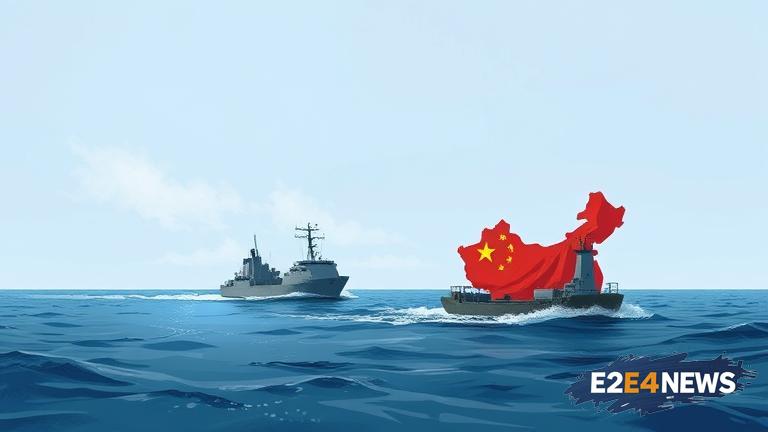The South China Sea has become a focal point of tension between the United States and China, with the latter challenging the legality of US freedom of navigation operations. The US has been conducting these operations to assert its right to navigate through international waters, but China claims that these actions are a violation of its sovereignty. China’s Foreign Ministry has stated that the US operations are a threat to regional peace and stability, and has called on the US to cease its activities. The US, on the other hand, maintains that its operations are lawful and necessary to ensure the freedom of navigation. The dispute has sparked concerns about the potential for conflict in the region, with both sides refusing to back down. The US has been conducting freedom of navigation operations in the South China Sea since 2015, with the aim of challenging China’s claims to the region. China has been rapidly expanding its military presence in the region, including the construction of artificial islands and the deployment of advanced military equipment. The US has accused China of attempting to restrict freedom of navigation and overflight in the region, and has called on China to respect international law. China, however, claims that its actions are legitimate and necessary to protect its sovereignty. The dispute has also drawn in other countries in the region, including the Philippines and Vietnam, which have their own claims to the South China Sea. The US has been working to strengthen its relationships with these countries, including through joint military exercises and diplomatic engagements. Despite the tensions, the US and China have been engaged in diplomatic efforts to resolve the dispute, including through regular meetings between senior officials. However, a resolution to the dispute remains elusive, with both sides dug in and refusing to compromise. The US has also been critical of China’s actions in the region, including its use of coercive tactics to intimidate other countries. China has responded by accusing the US of interfering in its internal affairs and attempting to contain its rise. The dispute has significant implications for regional security and stability, as well as for the global economy. The South China Sea is a critical trade route, with billions of dollars’ worth of goods passing through the region every year. Any disruption to navigation in the region could have significant economic consequences, including for the US and its allies. The US has also been working to strengthen its military presence in the region, including through the deployment of advanced military equipment and the conduct of joint exercises with its allies. China, however, has been rapidly expanding its own military capabilities, including through the development of advanced naval and air forces. The dispute has also raised concerns about the potential for conflict in the region, including the possibility of a miscalculation or accident that could escalate into a wider conflict. The US and China have a complex and multifaceted relationship, with both cooperation and competition in areas such as trade, security, and diplomacy. However, the dispute over freedom of navigation operations in the South China Sea has become a major point of tension between the two countries. The US has called on China to respect international law and to cease its attempts to restrict freedom of navigation and overflight in the region. China, however, has refused to back down, and the dispute remains unresolved. The international community has been watching the dispute with concern, with many countries calling for a peaceful resolution to the conflict. The US and China have a responsibility to work towards a resolution to the dispute, including through diplomatic efforts and a commitment to respecting international law. The dispute has significant implications for regional security and stability, as well as for the global economy, and it is essential that a resolution is found to prevent further escalation. The US and China must work together to find a solution to the dispute, including through a commitment to diplomacy and a respect for international law. The dispute over freedom of navigation operations in the South China Sea is a complex and challenging issue, but it is essential that a resolution is found to prevent further escalation and to ensure regional security and stability.
